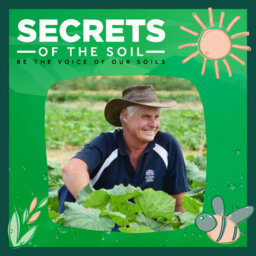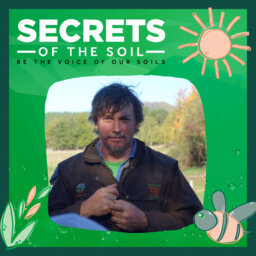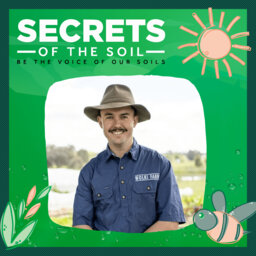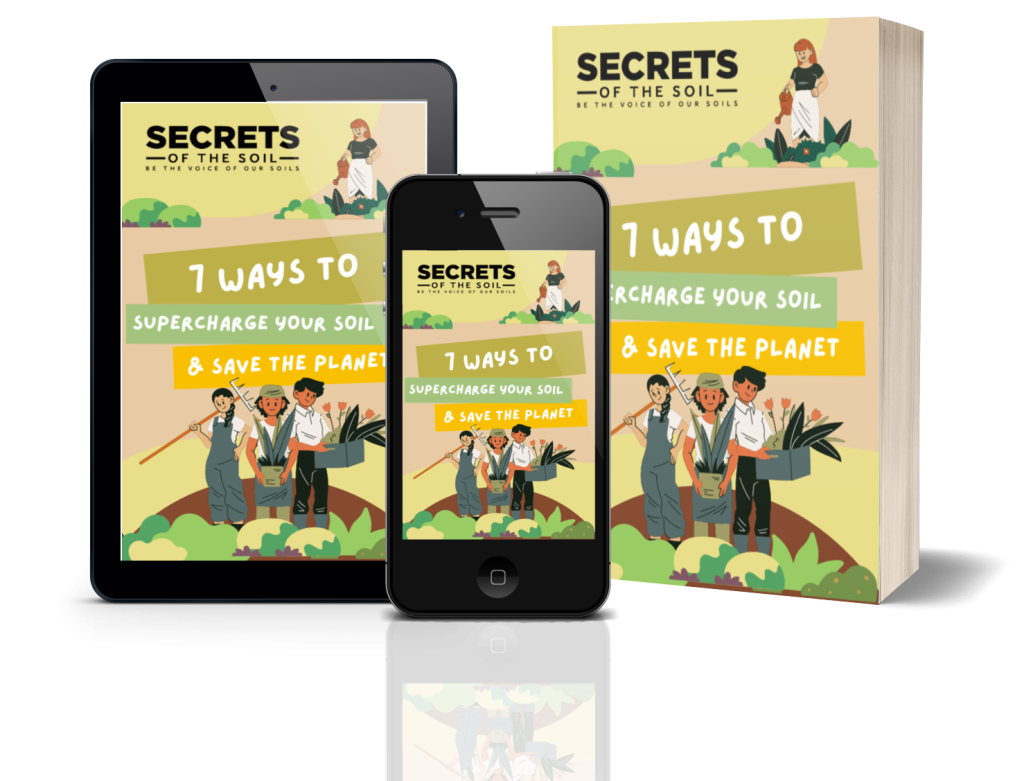In this enlightening episode, host ‘Regen Ray’ Milidoni welcomes the indomitable Nick Steiner, a titan in the world of regenerative agriculture. Joined by the shared passion for nurturing our earth, Ray and Nick unravel the intricate dance of permaculture and its profound impact on sustainability and eco-efficiency.
🎧 Tune in to explore:
The philosophy of Regenerative Agriculture: Delve deep into how regenerative practices can rejuvenate our soils, enhance biodiversity, and create more resilient ecosystems.
Solutions from Permaculture: Nick’s practical advice from his extraordinary journey and day-to-day implementations in permaculture that everyone, even urban dwellers, can adopt.
Personal Actions and Collective Impact: Learn how small, consistent changes can start a revolution from the ground up, and how you can contribute to a healthier planet.
Key Takeaways:
Bridging Farming Practices: Discover the importance of combining traditional and regenerative farming methods to foster a learning atmosphere and accelerate ecological recovery.
Mindset and Approach: Emphasizing starting small and stacking functions in permaculture can lead to significant environmental impacts without overwhelming beginners.
Community and Connectivity: The role of social media in spreading awareness and knowledge about sustainable practices, and how digital platforms can be leveraged for education and community building.
Don’t miss this opportunity to enrich your knowledge and contribute to a greener world. Your actions today define the soil of tomorrow!
Who is Nick Steiner?
After studying innovation and entrepreneurship, He dedicated his life to exploring, developing, and sharing ways of growing plants and regenerating ecosystems with the help of water.
During the past three years, He had the great pleasure of building the educational branch of Climate Farmers. They have built a global network of more than 100 educators and professionals and supported hundreds of European farmers on their regenerative journeys.
By standing on the shoulders of regenerative giants Nick is always able to get inspiration and advice for even the most complex cases.
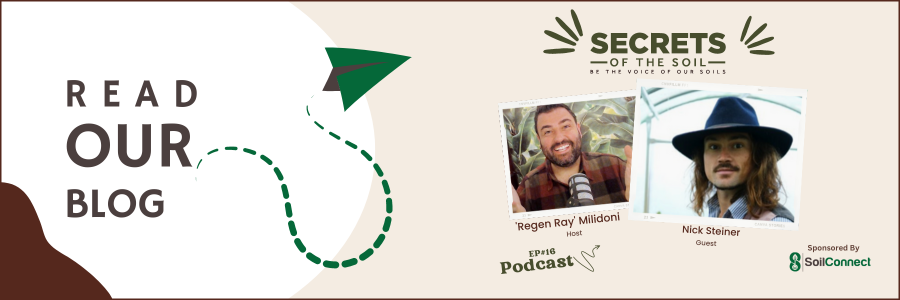
The Power of Regenerative Agriculture
In the latest episode of “Secrets of the Soil,” our esteemed guest, Nick Steiner, joined host ‘Regen Ray’ Milidoni to dive deep into the fascinating world of permaculture and regenerative farming. Steiner’s rich experience offered listeners actionable insights into creating sustainable, self-sufficient ecosystems that are beneficial for both our plates and the planet.
Building Topsoil and Sustainability
At the heart of regenerative agriculture lies the focus on enhancing and maintaining topsoil quality. As Steiner pointed out, this approach doesn’t just aim to sustain but regenerate—increasing biodiversity, enriching soils, improving watersheds, and enhancing ecosystem services. By producing more with less, regenerative techniques emphasize minimal input but maximum output, a principle that can drastically change agricultural practices globally.
A Unified Vision for Agriculture
A compelling aspect of Steiner’s discussion was the need for a coherent, unified definition of what regenerative agriculture really entails. The vagueness and personal interpretations, while offering flexibility, can sometimes dilute the core objectives of the movement. Moreover, bridging the gap between conventional farming techniques and regenerative practices through mutual learning and cooperation could catalyze a widespread adoption of sustainable practices.
Overcoming Divisiveness
Discussing the community dynamics, Steiner and Milidoni touched on the divisive attitudes that can sometimes surface within the regenerative agriculture community. Emphasizing unity and shared goals could drive collective progress and lead to achieving larger impacts than isolated efforts ever could.
The Grassroots of Change
With a nod to his efforts with Climate Farmers and Climate Farmers Academy, Steiner shared an ambitious goal: transitioning 10% of European land to regenerative farming within five years. This scale of change emphasizes not only the importance of strategic, large-scale operations but also highlights the significant impact of community-led, grassroots initiatives.
Permaculture as a Lifestyle
Turning the soil, so to speak, to the principles of permaculture, Steiner laid out why this approach is more than just farming—it’s a lifestyle. By focusing on creating closed-loop systems that recycle nutrients and energy much like natural ecosystems, permaculture presents a blueprint for sustainable living irrespective of the scale.
Practical Application
The discussion wasn’t just theoretical. Steiner offered practical tips on water management and starting small—an approach reflecting the permaculture principle of “small and slow solutions.” Whether it’s a rainwater collection system or introducing native plants to your garden, the smallest steps can lead to substantial environmental impacts.
Mindset Over Matter
Both Steiner and ‘Regen Ray’ highlighted the importance of the mindset shift when approaching permaculture. It’s not about having vast plots of land; it’s about leveraging whatever space and resources you have to mirror natural processes and create a sustainable cycle that benefits both human needs and ecological health.
Connecting and Educating Through Social Media
Expanding on the role of digital platforms in promoting sustainable practices, Steiner discussed how social media can be a powerful tool for education and inspiration. With his platform, PermaNick, he reaches out to an ever-growing community, sharing his knowledge and daily practices that make permaculture approachable and feasible.
The episode wrapped up with a potent call to action for all listeners: get outside, get your hands dirty, and keep digging deeper into the secrets of the soil. Steiner’s parting advice was focused on individual initiative and the power each person holds to make a difference, resonating deeply with ‘Regen Ray’s’ own ethos of learning and growing together.
By harnessing the collective wisdom shared in this enlightening episode of “Secrets of the Soil,” we can all contribute to a healthier planet. It starts with a single patch of earth, a handful of seeds, and the will to make a change.


